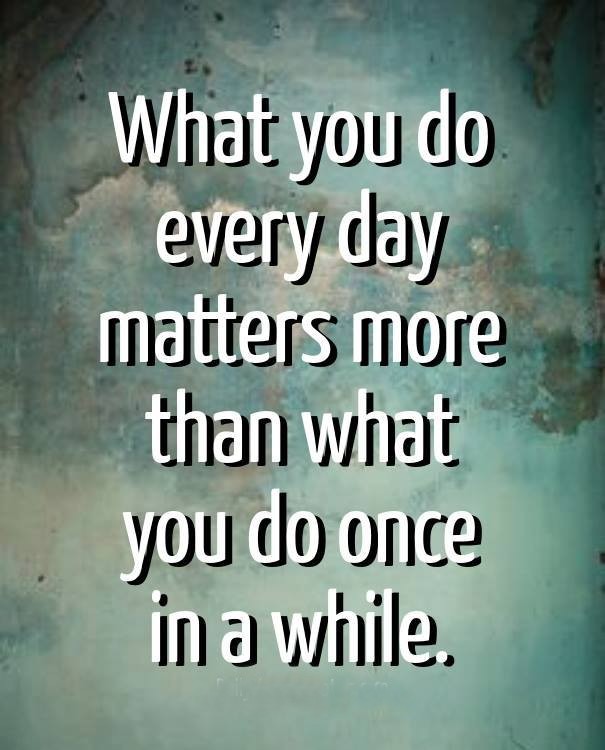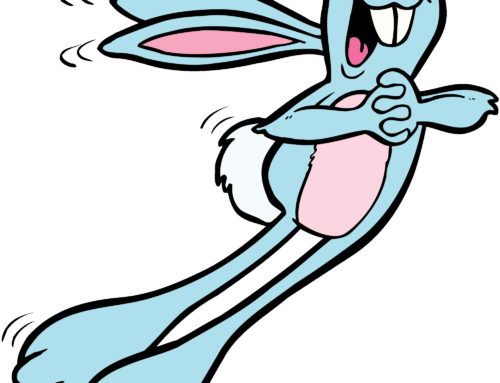You’re heard the saying, “If you keep doing what you’ve been doing, you’ll keep getting what you’ve got.” This is absolutely true! And it’s GOOD NEWS!
Usually this phrase is applied negatively to choices and actions that are not producing desired results – the implication that something different should be tried.
But consider the power of doing something well – over and over again – and the potential results inevitable in that repetition. Truly, if you keep doing what you’ve been doing, you’ll keep getting what you’ve got – and MORE.
There is one factor, however, that interferes with this principle, and that is . . .
. . . Underestimating the power of small steps.
Charles Duhig writes in The Power of Habit, “Habits aren’t destiny . . . habits can be ignored, changed, or replaced. But the reason the discovery of the habit loop is so important is that it reveals a basic truth: When a habit emerges, the brain stops fully participating in decision making. It stops working so hard, or diverts focus to other tasks. So . . . unless you find new routines— the pattern will unfold automatically.”
Whether in psychotherapy, hypnosis, sex therapy, or life and business coaching, I will often ask a client, “So what is the next smallest step you can take?” This is not about underestimating someone’s ability to change; rather it is about freeing the mind to thinking more easily and sequentially. It makes the task more doable, manageable, and attainable.
We’ve also been told, “Practice makes perfect.” Not true. Practice makes more of what is practiced. There is no magic nor perfection in making change or reaching goals. It’s not accomplished by a noble leap, and it’s seldom a straight line from point A to point B. Rather most change, however significant, happens one step at a time. One step followed by another and another. This is to be appreciated, because it is in alignment with how our brains function.
The unconscious mind likes specific directives. So when we make a decision to take the next smallest step, we provide a directive that is manageable at a conscious and unconscious level. If we do not accomplish the step – or misstep – it then provides an opportunity to re-visit the directive and identify what truly is the next smallest step. The destination may be clear; the internal GPS is adaptable.
So that next time you are changing direction, taking the next smallest step – and you are doing it over and over again – appreciate that this repetition is, in fact, the most powerful path of transformation.
And MORE GOOD NEWS! This also means that showing up late because weather is bad or having a special dessert for a special occasion will take little toll because “What you do every day matters more than what you do once in a while”. So unless the less-than-productive behavior is repetitive, harming yourself, or harming others, lighten up, and give yourself a break. Tomorrow you return to the next smallest steps that create your highest quality of life.






